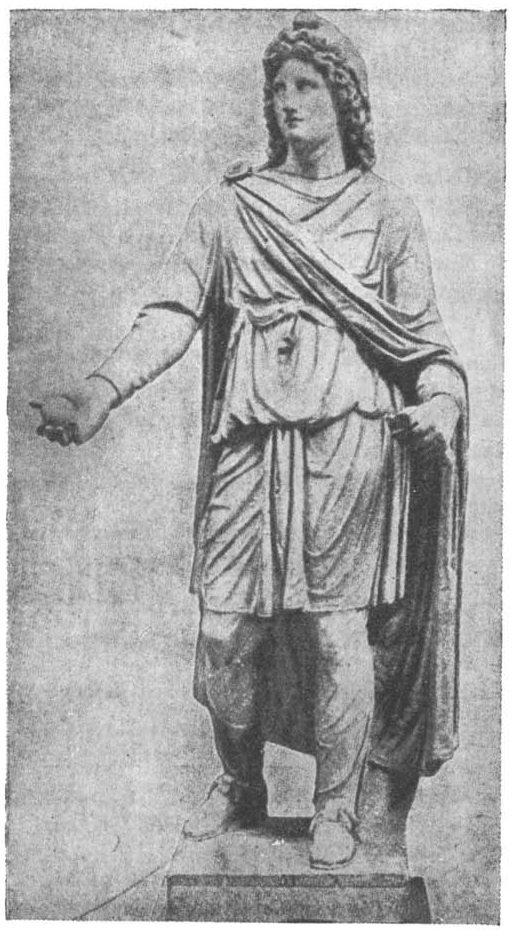
| TEN COMMANDMENTS OF ADAM / THOR / INDRA 6. Ten Commandments of Adam / Thor / Indra :
The Ten Commandments mentioned in other religions are copied from Sumerian Aryans. The actual Ten Commandments are of Adam / Thor / Indra which he gave to Eve.
From the Book The British Edda 1930 Part 2 :
The Ten Commandments of Adam-Thor on the Duty of Love :
King Thor or Mioth (Sumerian Mit or Mitara) as Mithra From
ancient statue discovered near Tiber, "possibly imported from
the Orient." (After Cumont, Mons., 45). The restored right
hand with apple is considered unauthentic.
The text is here translated literally, as far as possible, for the first time. Eve, who recites the verses to her son Gunn or Cain, thus speaks :
Eve quoths : Hug Runes should'st thou know if thou would'st be Gooder than the swains of common men.
Now shalt thou choose whether I be silent, or bid me These whetted (moral) weapons launch at thee!
Saying these, or hearing them in silence, handcuffs thyself to Hug. All are from the mind of Meti (Mioth, Mithra, Adam).
Gunn : Flinch not will I, e'en tho' I knew I was deathfated :
Eve :
This I counsel thee Firstly :
That
thou with thy friends Blameless be;
This I counsel thee Another :
That
thou swear no oath
This I counsel thee Thirdly :
That
thou in the Thing court Not
all (confessions) are wanted. If thou against him 'tush', Or, soon for settling it himself will say : 'Hated
are the words of a homeless people, Only the Goths get Justice!'
This I counsel thee Fourthly :
If
a byre (Edenite) fortune-teller Blameful be in the way, Foresighted
eyes are needed for our sons, Oft
where a baleful visaged woman stands near the beat (-en track)
This I counsel thee Fifthly :
When
thou see'st fair
This I counsel thee Sixthly :
Tho'
high words fareforth
This I counsel thee Seventhly :
If
thou hast a scathedeal
This I counsel thee Eighthly :
That
thou shalt see no ill,
This I counsel thee Ninthly :
That
thou an outcast save
This I counsel thee Tenthly :
That
thou ne'er trust The
Wolf remains in the young son, But
wits and weapons everyone wants to fetch
[On Adam-Thor's Decalogue re Sumerian, Babylonian, Hittite and Hebrew codes and on Eve's Apple, see Appendix I, pp. 234 f.
The current popular belief that "The Commandments" are "The Word of God" and were personally delivered by the latter to man, engraved on tables of stone is seen to be long to the later priestly periods of the Babyloniana, when King Thor had become deified as the Father God, and his human origin had become more or less completely forgotten.
And similarly the belief that God formerly held converse with men and especially with priests and "prophets" is seen to be obviously founded partly on the superstitions of the oracular matriarchist-weirds of Fate as "Hearers of the Voice" and partly on a glimmering of the genuine tradition that the human original of the Father God, under his titles of lah, Jah, Ju-piter, Zeus, Indara, Thor, or Odin, formerly held converse with man, but forgetful of the fact that this converse occurred at the period when be was still a human king and before his deification]. |
